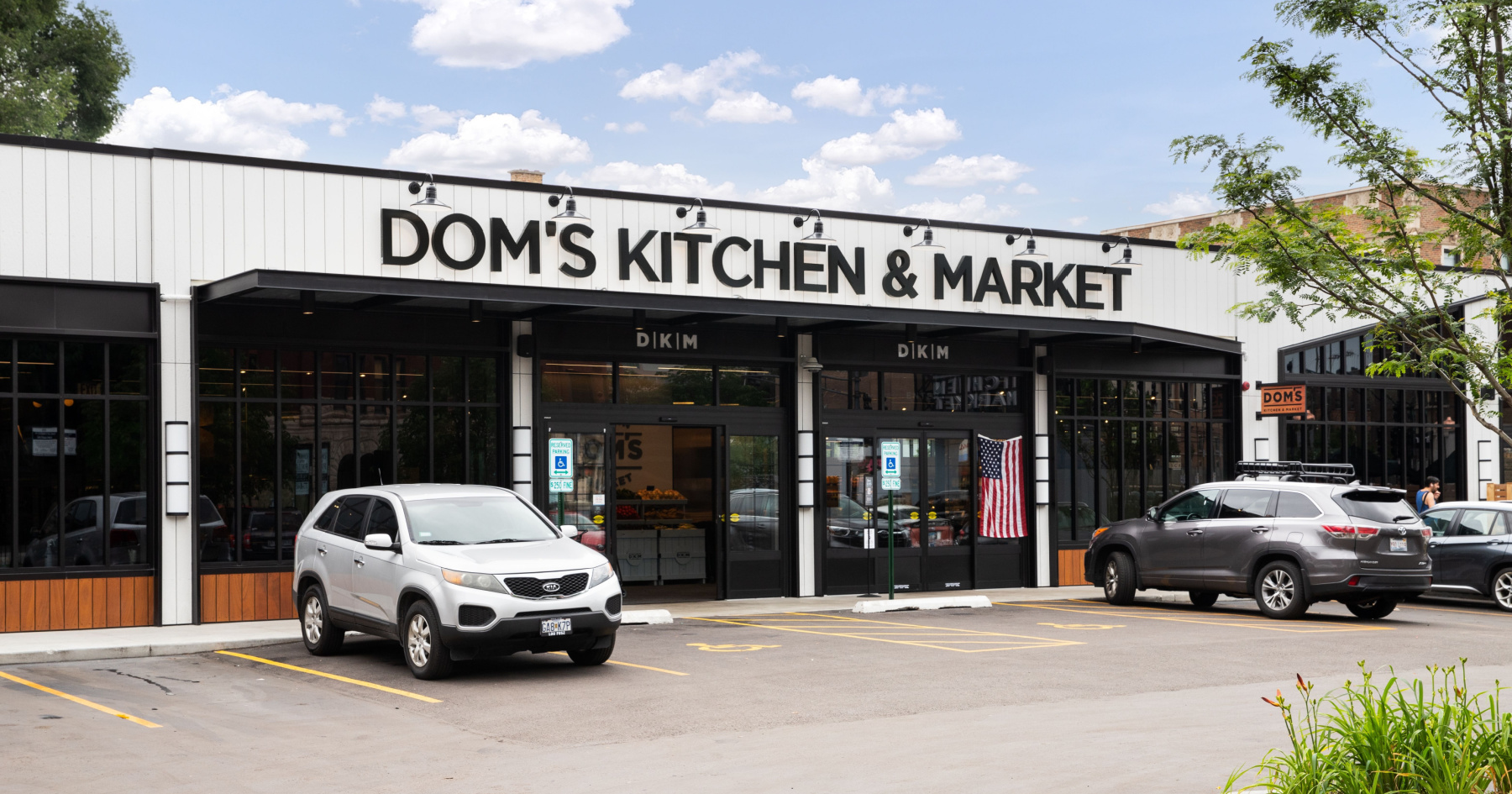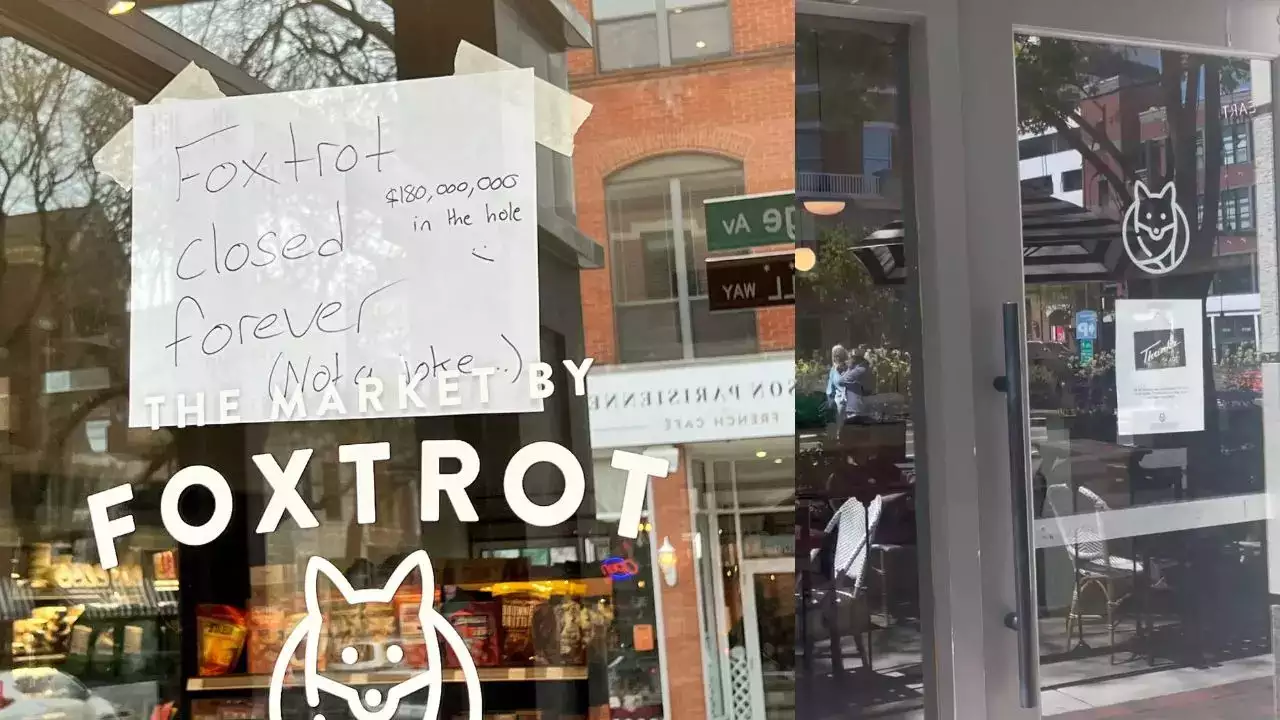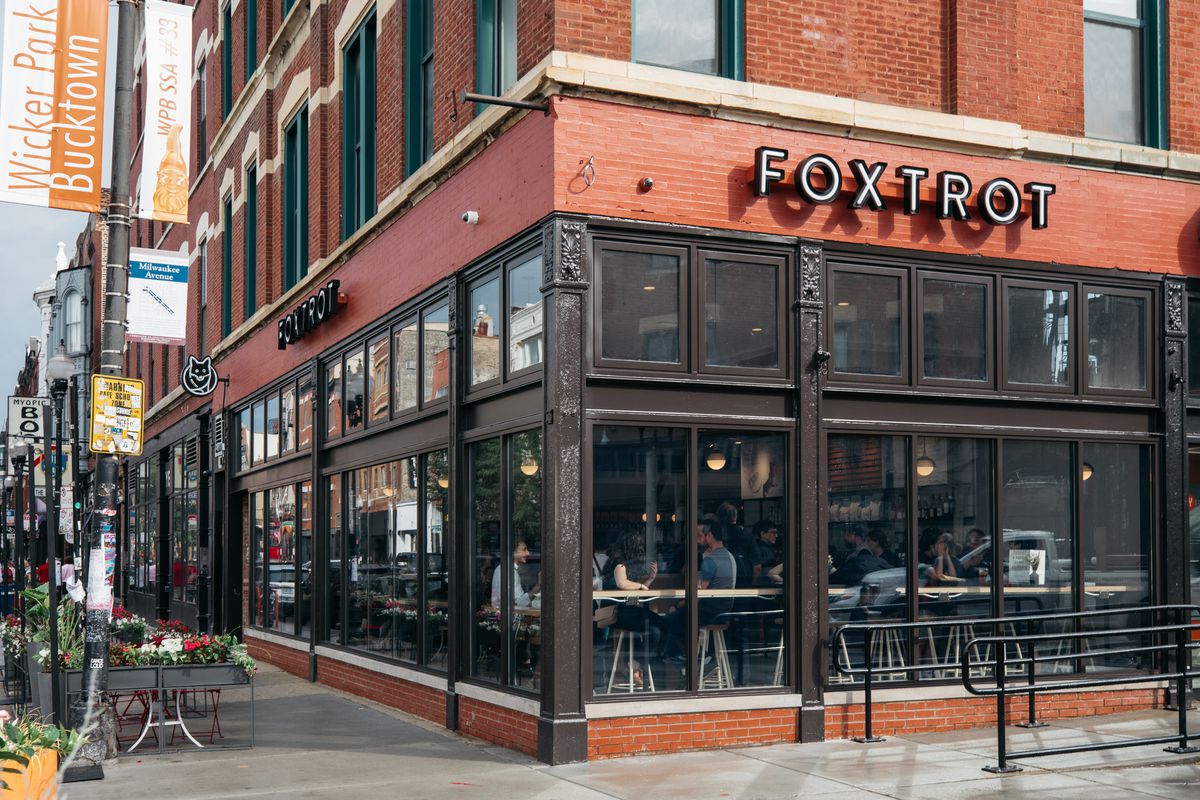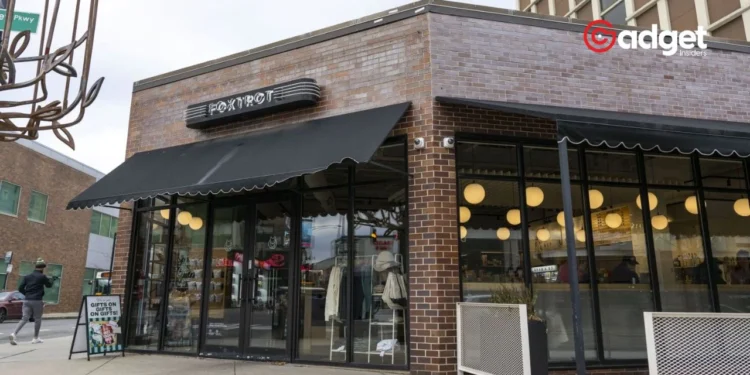In the sprawling cityscapes where the pace of life accelerates daily, fast-casual dining options like Foxtrot and Dom’s Kitchen & Market have become urban staples. These outlets, promising quick yet quality fare, seemed poised for perennial growth, especially during the COVID-19 era which saw a surge in demand for convenient, contactless, and comfortable dining experiences.
Urbanites, particularly in bustling districts across Washington D.C., Texas, and Chicago, initially flocked to these chains, enticed by their offerings of freshly made sandwiches, organic wines, and artisanal desserts.

Foxtrot and Dom’s Kitchen & Market: The Rise and Expansion
Foxtrot and Dom’s wasn’t just another chain; it was a symbol of urban modernity and convenience. After a successful merger in late 2023, forming Outfox Hospitality, the chain boasted about 33 locations nationwide, having raised over $18 million in debt financing.
This expansion was reflective of a broader industry trend where fast-casual and grab-and-go sectors saw explosive growth, capitalizing on the new consumer behaviors shaped by pandemic conditions.
Popular restaurant chain filing for bankruptcy, closing all locations https://t.co/izYE3Vrl7v
— Miami Herald (@MiamiHerald) April 24, 2024
The Tumultuous Post-Pandemic Market
However, as the immediate threats of the pandemic subsided, so did the novelty of to-go cocktails and premium-priced pints of ice cream. The economic landscape had shifted: inflation soared, eroding the purchasing power of the average consumer.
Budget-conscious diners began reconsidering their spending habits, weighing the cost of convenience against escalating daily expenses. This financial recalibration meant that indulgences once overlooked in the name of convenience were now scrutinized under the lens of necessity and value.

An Abrupt Closure and Its Ripple Effects
The bubble burst in April 2024 when Outfox Hospitality, despite its apparent success and rapid expansion, announced it would be filing for Chapter 7 bankruptcy and closing all locations effective immediately.
This shocking revelation was delivered to approximately 100 corporate employees during a harrowing conference call, with around 1,000 market staff across the U.S. soon finding themselves jobless.
The company expressed its heartbreak over the decision, emphasizing the difficulty of this choice and apologizing for the “inconvenience” it caused—an understatement to those whose livelihoods were tied to the chain’s fortunes.
Community Impact and Consumer Reactions
The closure had immediate and visible impacts. In downtown D.C., forlorn employees distributed free bottles of wine to passersby, a somber farewell gesture from a once-thriving establishment.
In Chicago’s Wicker Park, residents expressed dismay, with one local recounting her decision to move to the area partly because of the convenience Foxtrot offered. Over in Dallas, customers were ushered out mid-morning, a scene described by onlookers as “bananas.”
These anecdotes paint a vivid picture of a community caught off guard, a sudden end to what many considered a neighborhood gem.

Looking Ahead: Lessons and Legacies
The downfall of Foxtrot and Dom’s Kitchen & Market serves as a cautionary tale about the volatility of the fast-casual market. It underscores the need for businesses in this sector to maintain a delicate balance between expansion and sustainability, particularly in a post-pandemic world where consumer priorities are notably shifting.
As other companies navigate these turbulent waters, the story of Foxtrot and Dom’s will likely resonate as a reminder of the fragility of success in the face of economic headwinds and changing consumer tastes. The industry must adapt, but the question remains: how and at what cost?










